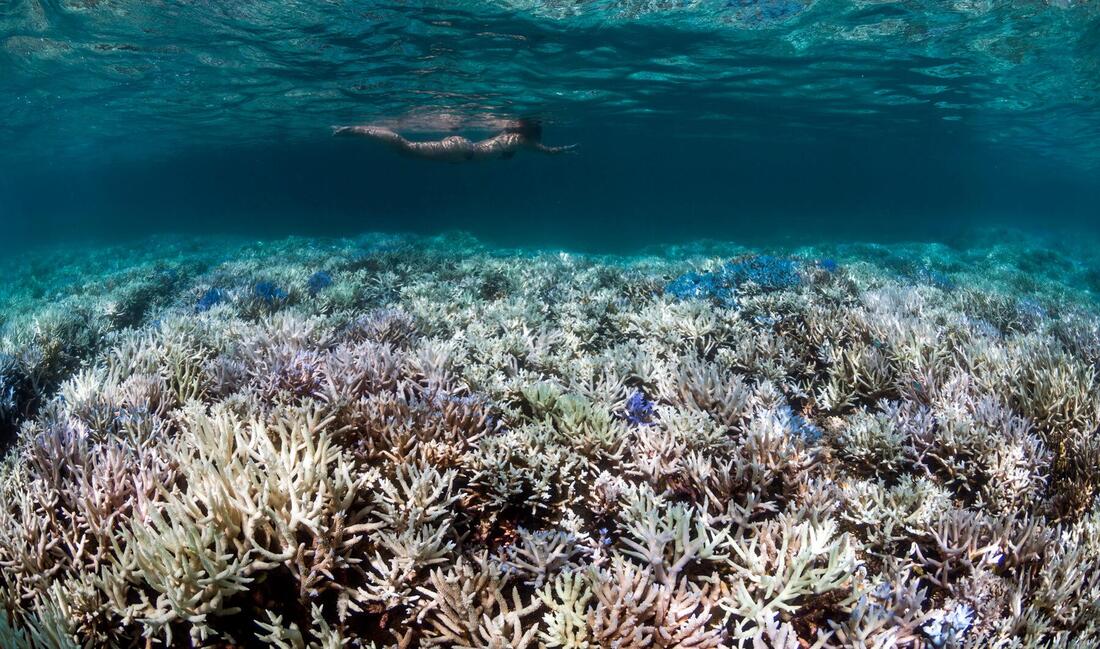|
By: Kay Kim Sunscreens help protect our skin from harmful UV rays; by using sunscreen, we reduce the risk of sunburns, skin cancer, and ageing. However, these amazing inventions used to protect ourselves can potentially harm us. Most sunscreens contain oxybenzone which is a harmful chemical known to destroy our ecosystem. Currently, there are more than 3500 skincare products that contain oxybenzone itself. That’s not all, other harmful chemicals such as OD-PABA, nano-Titanium dioxide, nano-Zinc oxide, Benzophenone-8, Benzophenone-1, Octinoxate, and Octocrylene can be found in some sunscreens. When people shower or swim while wearing sunscreen, the chemicals in sunscreen become exposed to the environment and contaminate our waters. These chemicals are harmful to marine life as it damages and kills corals by bleaching them. Thousands of marine species depend on coral reefs for shelter and protection; furthermore, corals are beneficial to humans as they act as natural barriers that stop powerful storms and waves. Oxybenzone can also create hormonal disruptions in the growth of green algae, fertility in fish, and defects in young mussels. Most of the organisms that are affected by these chemicals are the species at the bottom of the food chain. This means that chemicals can be transferred and accumulated as one species eats the intoxicated one. In addition, by disturbing even a single organism, the food chain will be affected. Marine species will continue to disappear if the use of sunscreen increases.
You might be wondering, how does this harm our quality of life? Well, when one organism becomes endangered or extinct, it impacts the entire food web. Studies show that as animals continue to go extinct, the organisms at the top of the food chain will be negatively impacted the most. For instance, if green algae go extinct because of the way we toxicate our oceans, fish will begin to starve, and other organisms that rely on fish and algae will go hungry; in the end, humans will be left with nothing to eat. Moreover, there is a possibility that humans will get sick from the bioaccumulation of toxic chemicals. This is not to say that we should stop wearing sunscreen, but instead, we should seek alternative solutions that are more sustainable. Firstly, a way to reduce toxic chemicals ending up in the waters is switching to mineral and reef-friendly sunscreens. Mineral sunscreens do not contain oxybenzone, octinoxate, or octocrylene; however, depending on the brand, there may still be chemicals like zinc oxide and titanium dioxide, so it is important to check the ingredient list. There are also reef-friendly sunscreen alternatives as well. For individuals that have sensitive skin, these might be easier on your skin than chemical sunscreens. Secondly, you can also avoid sun exposure by staying inside from 10 am to 2 pm (when the sun is at its peak). And lastly, wearing protective gear like sunglasses, leggings, sunhats, sun shirts and umbrellas will lower the amount of UV exposure to your skin. In the end, it is our actions that contribute to the future of the Earth; therefore, it is our responsibility to make an effort to provide a sustainable future. Let’s continue to protect our skin and marine life. Sources: National Ocean Service https://oceanservice.noaa.gov/news/sunscreen-corals.html Surfrider Foundation https://www.surfrider.org/mission
3 Comments
11/17/2021 12:49:27 am
In recent years, the awareness of environmental protection has been much better than in the past. More people have learned about the negative impact of sunscreen on the marine ecology, and people also know how to protect the marine ecology.
Reply
10/16/2022 07:24:32 pm
Here environmental must collection. Part goal trip coach.
Reply
Leave a Reply. |
TUGIWelcome to Seeds for Thought, the TUGI Blog where we will be highlighting incredible stories of environmental activists and change makers, environmental news, and tips to living a more green and sustainable lifestyle. If you are interested in learning more about what we are doing on a monthly basis, subscribe to our TUGI Newsletter. Archives
May 2021
Categories |
TUGI
|
|

 RSS Feed
RSS Feed
